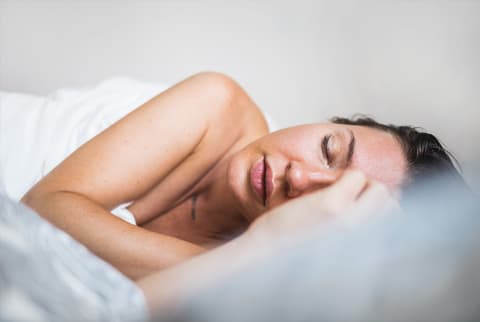Advertisement
Take Melatonin For Sleep? It Could Be Harming Your Gut, Study Finds


If you're like almost half of Americans, you're no stranger to sleep deprivation. And if you're like any hot girl on TikTok, you have stomach issues. A study out of Brazil1 looked at how taking melatonin in the hopes of improving sleep could be affecting your gut microbiome. Here's what to know.
Mice on melatonin
Researchers were interested in how taking melatonin might support gut health and gut microbiomes, as it has been suggested to be potentially helpful for inflammation. What they found, although not entirely conclusive, did not bode well for that hypothesis.
The study focused on mice with varying levels of dysbiosis and how melatonin supplementation affected their microbiome and gut inflammation levels. While the authors found some anti-inflammatory effects in the short term on certain gut conditions, they also found significant evidence that melatonin had an inflammatory effect on the gut, especially with longer-term use.
These initial findings are helpful in pointing science in the right direction, but further studies—especially ones that look at the effect in humans—are needed to say anything conclusive.
The science on supplementation
Health experts have become increasingly vocal about the importance of quality sleep for a balanced, healthy routine. Melatonin is a hormone that our bodies naturally produce to help regulate our sleep cycles. And while supplementation of melatonin has become relatively common in the past decade, experts warn against regular use.
And at the same time, gastrointestinal conditions like (IBS) continue to be a major concern for many of us2, especially women. With always-growing evidence pointing to our microbiome health being essential for gut health, brain health, immune function, disease prevention, and so much more, it's certainly not something we want to mess with.
There are plenty of ways to support your microbiome, and cutting back on melatonin might just be one of them according to this animal research.
Safer ways to snooze
If saying goodbye to your nightly melatonin has you stressing, don't fret. There are plenty of expert-backed strategies and supplements to get you falling (and staying!) asleep in no time.
Watch the caffeine: Our cup (or three…) of morning coffee has proven health benefits, but make sure you're getting it early in your day. Everyone has a different caffeine tolerance, but if you're noticing any sleep disruption, start working your cutoff time further back.
Supplement safely: If you're hooked on melatonin, this guide will help you slowly wean yourself off it so you can replace it with safer sleep supplements featuring nonhormonal ingredients. Magnesium is one that many experts recommend.
Embrace the sunshine: A better night's sleep actually starts the moment you wake up. Science tells us that getting sunlight first thing in the morning helps regulate our internal clocks, supporting well-timed sleep signals at night.
Create a sleep sanctuary: You'll sleep most soundly when your bedroom is stress-free, without too much clutter or distraction, and well-protected from noise and light.
The takeaway
Scientists looked into melatonin as a potential therapeutic supplement for gut inflammation, and early results do not look good. In fact, they found evidence to the contrary. So if you struggle with sleep or stomach issues (or both), consider avoiding this supplement and opting for expert-backed strategies and supplements that are easier on your microbiome.


















